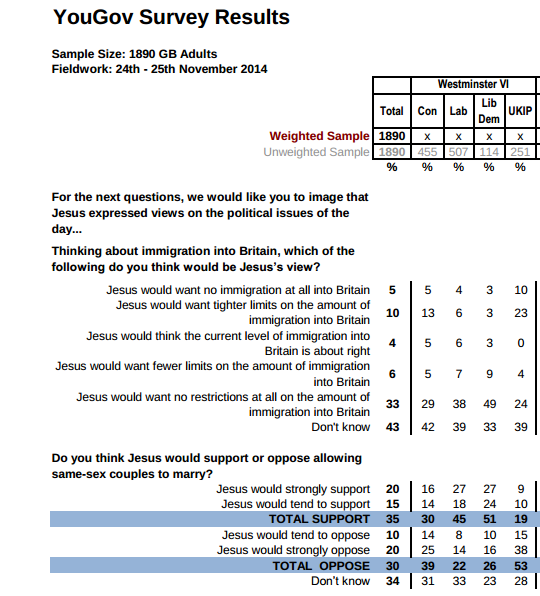The CofE
published its latest attendance stats earlier this week, along with a slew of other tables and data sets on baptisms, weddings, funerals, growth, decline and pretty much anything else it could report on. There are
various bits of commentary already out there on what it all means, or doesn't.
For several years I've been tracking comparative data by diocese, to see which are doing well (and we might learn from) and which aren't (ditto). The stats for the 20 years to 2010 are
pretty gruesome reading, and best handled with prayer and half a pint of sherry. There's even some
encouraging things in the latest set of data, despite the continuing overall drop in numbers.
The report itself suggests that for 'trend analysis', Adult Weekly attendance is a good indicator to use. So, here's my usual 'table' of how each Diocese has got on. There's been a recalculation of the stats recently (which were probably
overestimating attendance and membership), so we can't go back any further than 2009 because it wouldn't be a like-for-like comparison.
|
Adult weekly attendance, 2009-2013.
|
|
|
change
|
|
change
|
|
London
|
10.2%
|
Chelmsford
|
-3.3%
|
|
Guildford
|
8.0%
|
Chichester
|
-3.9%
|
|
Southwell & Nott'm
|
5.8%
|
Oxford
|
-4.1%
|
|
Newcastle
|
4.1%
|
Peterborough
|
-4.2%
|
|
Liverpool
|
3.8%
|
Blackburn
|
-4.9%
|
|
Leicester
|
2.5%
|
Wakefield
|
-5.1%
|
|
Ripon & Leeds
|
2.4%
|
Rochester
|
-5.3%
|
|
Ely
|
2.1%
|
Derby
|
-5.5%
|
|
Coventry
|
0.8%
|
St. Albans
|
-5.7%
|
|
Sodor & Man
|
0.0%
|
Exeter
|
-5.9%
|
|
Sheffield
|
-0.6%
|
Truro
|
-6.3%
|
|
Birmingham
|
-0.7%
|
Bath & Wells
|
-6.6%
|
|
Winchester
|
-1.1%
|
Worcester
|
-7.3%
|
|
Norwich
|
-1.3%
|
St. Edms & Ipswich
|
-7.7%
|
|
Durham
|
-1.8%
|
Portsmouth
|
-7.8%
|
|
Lichfield
|
-2.1%
|
Southwark
|
-8.1%
|
|
Hereford
|
-2.2%
|
Canterbury
|
-8.2%
|
|
Manchester
|
-2.8%
|
York
|
-8.7%
|
|
Salisbury
|
-2.8%
|
Gloucester
|
-9.6%
|
|
Bristol
|
-2.9%
|
Chester
|
-10.9%
|
|
Total C of E
|
-3.1%
|
Bradford
|
-11.0%
|
|
Carlisle
|
-3.1%
|
Lincoln
|
-18.2%
|
Over the 4 years to 2013, 9 dioceses grew, 1 was stable (though Sodor and Man is more the size of an average Deanery), and 33 declined. So shrinking Dioceses outnumber growing ones by about 4:1. To see Leicester, Southwell and particularly Liverpool growing is quite a turnaround from
recent history. What are they doing differently that other dioceses could learn from?
London continues to be the engine room, with the growth of the last 20 years it is now twice the size of any other diocese bar Oxford. But maybe, just maybe, the days when London was the only growing Diocese in the CofE are over. And if those growing dioceses continue, they show that the CofE can grow in both urban and rural, Northern and Southern, richer and poorer areas. The CofE is
starting to take church growth seriously, I would love to see a piece of work on what Diocesan best practice for growing the local church would look like.
The figures for childrens attendance, which I'll do if there's popular demand, are less encouraging, with a big drop in 2012-13, and a faster rate of decline overall. But these are smaller and more volatile, and not as reliable as the adult figures.
....the reality of decline is that we feel duty-bound to maintain the parish system and the local church building until it kills us. So the burden is never reduced, but it falls upon a smaller and smaller number of people.
4. Who is accountable for all this? Can we, will we, ask our bishops and clergy what they've been doing, and what they're doing now? Who is learning the lessons? Or are we (in Einsteins definition of madness) continuing to do exactly the same as before in the hope of a different result?
...6. I have the figures for childrens attendance and they are even scarier. If the church is relying on children as 'the future of the church' then we're looking at a church 60% the size of what it is at the moment.
7. The CofE has only two realistic options. The first is to start strategic planning for a church which will be 20-25% smaller in 2030, based on the continuation of current trends. The second is to shift significantly towards leadership, investment and structures which are focused on growth. There are currently incremental steps towards the latter (Fresh Expressions, mission funding, Bishops Mission Orders etc.), and a vast amount of 'make do and mend' towards the former.
I don't know what it will take to provoke the necessary sense of crisis, the deepening of conviction that we need to tackle this issue, so that the CofE overcomes its sniffiness about 'bums on pews' and recognises that there's a reason the New Testament talks about the number of people being saved on a regular basis. It's because each of those people matters to God, and each of those people is someone we're called to reach with the gospel. The CofE is largely failing in that task, and until we have reckoned with that, we call into question our claim to be called a church at all. Are we actually doing the task our Master has set us?
, though under Justin Welby's leadership, with a number of excellent new bishops, and the national CofE
starting to focus on growth and discipleship, perhaps the tide is turning. But it is still a heck of a long way out.


